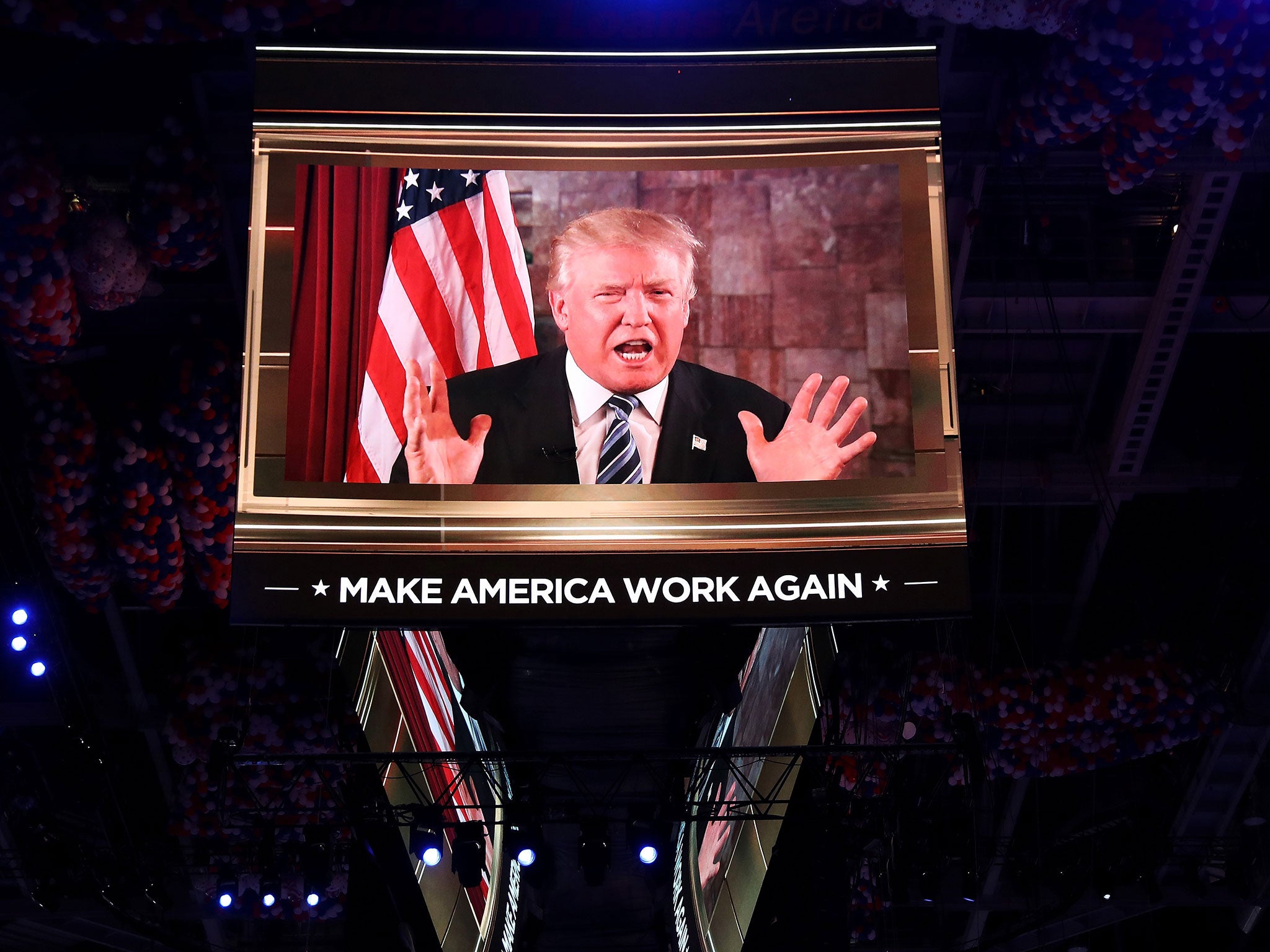Donald Trump has destroyed the GOP
If Trump wins in November, a new Republican Party will have been born in his image – populist, ultra nationalist and intolerant of dissent

Your support helps us to tell the story
From reproductive rights to climate change to Big Tech, The Independent is on the ground when the story is developing. Whether it's investigating the financials of Elon Musk's pro-Trump PAC or producing our latest documentary, 'The A Word', which shines a light on the American women fighting for reproductive rights, we know how important it is to parse out the facts from the messaging.
At such a critical moment in US history, we need reporters on the ground. Your donation allows us to keep sending journalists to speak to both sides of the story.
The Independent is trusted by Americans across the entire political spectrum. And unlike many other quality news outlets, we choose not to lock Americans out of our reporting and analysis with paywalls. We believe quality journalism should be available to everyone, paid for by those who can afford it.
Your support makes all the difference.This week's Republican convention has been a profoundly depressing event. Not only did it nominate a presidential candidate whose hallmark is a blustery maleficent ignorance, but it also revealed its prime unifying factor to be a hatred of Hillary Clinton – guilty, in Donald Trump’s words, of “terrible, terrible crimes”.
Those chants of “lock her up” will go down as the convention’s anthem, a harbinger of what will surely be the coarsest and nastiest battle for the US presidency in modern times.
Its climax was Mr Trump’s speech, a 75-minute populist rant worthy of an aspiring Latin American caudillo. Utterly missing was optimism, that traditional hallmark of US politics. Hardly once did he smile. Snarling anger dominated, along with the strongman’s certainty that he alone was capable of solving the problems of a broken and humiliated country.
In the search for historical parallels, many have cited 1968, when an earlier Republican nominee named Richard Nixon played the “law and order” card by appealing to the “silent majority” of Americans frightened and appalled in the most tumultuous year in modern US history. But Nixon’s speech was a gentle idyll by comparison. As for Ronald Reagan’s “Morning in America”, Mr Trump evoked the darkest midnight.
Nor did he make a serious attempt to soften his abrasive image. The most effective efforts to this end came from his sons and daughters, who portrayed their father as a caring man, colour-blind and a champion of women – despite the insults to Hispanics and women that have marked his career and in which Mr Trump seems to revel.
As usual, he trampled on the facts. The self-styled national truth-teller, who claims both parties have hidden the grim reality of America in conspiracy of elites, based his pitch on a farrago of distortions and downright falsehoods. Contrary to his assertions, the US economy is faring better than most of its rivals, and the violent crime rate is far lower than a decade ago. The national fabric was far closer to fraying in 1968 than in 2016.
But such facts contradict the Trump narrative and pass unmentioned. He has no advisers of note. He promises instant solutions, but has not remotely sketched out how he will achieve them.
What matters though is whether the Trump message – his promise to be the voice of the little man and, borrowing a phrase from Nixon, champion of the “forgotten of America” – will extend far enough beyond the rapturous faithful in Cleveland to send the messenger to the White House.
Historically, thanks to its sheer size and diversity, the US has been relatively immune to populism.
But Mr Trump’s improbable march to the Republican nomination shows the US is subject to the same riptides of popular discontent that have upended politics in many western democracies. As in them, his outsider’s appeal crosses party lines. The signs right now are that the election will be close. A traditional post-convention bounce may propel Trump into the lead, for a few days at least.
Either way his takeover of one of America’s two dominant parties is a watershed. If Mr Trump wins in November, a new Republican Party will have been born in his image – populist, ultra nationalist and intolerant of dissent. Far, far better that he loses.
His party – so divided over his candidacy that half its grandees refused to show up at the convention – will have to remake itself. The success of Mr Trump has shown the old Republican formula, of pandering to the affluent, while peddling rigorous social conservatism and racist dog whistles to the rest, no longer works. If Cleveland hastens that process, the depressing convention will have been worthwhile.
Join our commenting forum
Join thought-provoking conversations, follow other Independent readers and see their replies
Comments